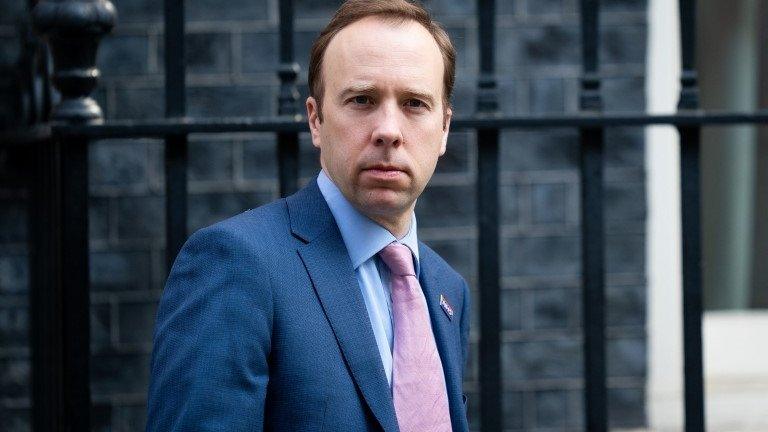The public's faith in government could slip after Hancock
- Published
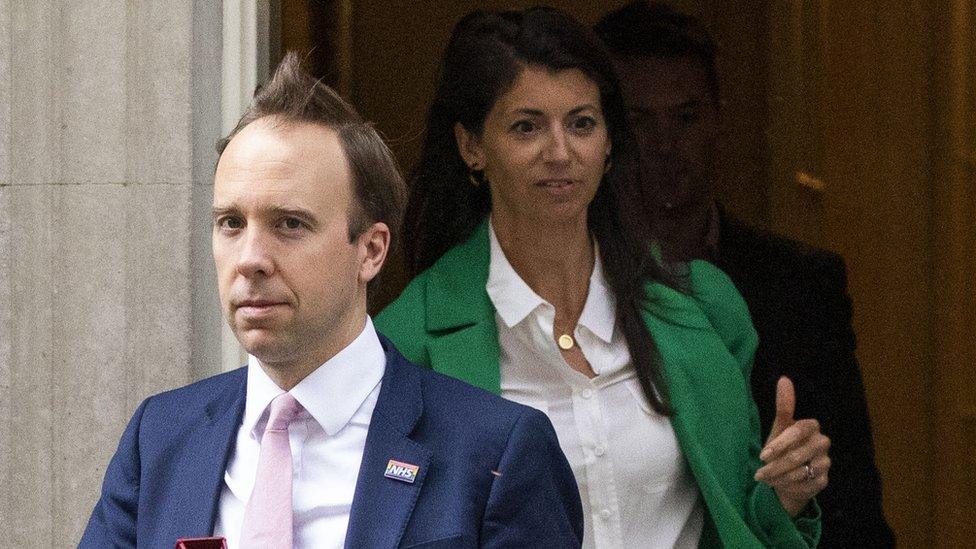
The departure of Matt Hancock in one sense follows a British political tradition - voters do not always expect ministers to behave well, but the merest sniff of hypocrisy can spell doom.
The man who literally, had his name on Covid laws that governed our private behaviour, could not stay in a job when he had broken the rules himself.
But there are many strands that make it a very modern mess.
First, I cannot think of another prime minister in modern times who would have tried to hang on to Mr Hancock to begin with - not because he had an affair, but because he was so obviously displaying double standards.
But Boris Johnson as prime minister almost has an allergy to giving ministers the sack.
His backers would say it is an admirable trait, showing loyalty to his people.
Priti Patel did not lose her job when she was found to have behaved badly to staff.
Robert Jenrick was not given his marching orders when he was found to have given planning permission unlawfully benefitting a Tory donor to the tune of millions of pounds.
But Number 10's detractors would say Boris Johnson never wants to act because his own slate is less than clean.
As one insider puts it ,"he never wants to be the one to strike the blow because he is not beyond reproach".
And Boris Johnson hates being told what to do.
So when opposition parties call for resignations or recriminations, this prime minister is more likely to dig in than give way.
Brazening out the bumps has long been his personal tactic.
Even today, when he was asked why he had not sacked Mr Hancock, he dangled the implication that he had in fact, taken action to get him out.
Erm, on Friday, Number 10 said the matter was closed.
On Saturday night Downing Street made clear the PM had not forced him out.
On Monday in front of the cameras, Mr Johnson though was quite happy to give the impression of a rather different course of events.
And Number 10's attitude makes Tory MPs, including some ministers, feel shaky.
One backbencher told me it "makes us worry about statecraft".
"The government has enormous power" and "it needs to show the responsibility that comes with that", they said.
A minister worries, "there is a cumulative impact", and a creeping concern about the "impression that the government has slipped its moral moorings".
Another told me that while sometimes things go wrong, "we should be doing things right and properly in all circumstances".
In the early part of his time in charge, Boris Johnson's administration relished rule breaking and enjoyed provocation.
Having marketed himself as a leader happy to defy convention, giving little regard to process was part of the political brand.
Brexiteers were the ones pushing against Westminster's grain.
If a few rules got bashed about, or processes ignored, so be it.
But one of his ministers worries now that "we are taking this too far", citing concerns in Tory ranks about how public jobs are being doled out, in particular how non-executive directors have been appointed to government departments .
There is the sense of a habit developed during the most turbulent days of the Brexit arguments - political force has to be met with force, but some MPs wonder, what is the logic with such an enormous majority?
There is another argument that during the emergency of the pandemic, ignoring process was the right thing to do.
With lives at stake, the formalities of normal government business were suspended.
But one senior figure suggests that the loosening of the rules when decisions had to be taken urgently has set a worrying precedent.
With Boris Johnson's massive majority these fears are not going to give Number 10 sleepless nights, but neither his front nor his backbenches feel entirely at ease, with a foreboding sense of what might be next in this extraordinary year.
Images from CCTV of private offices have been published, ending the political career of one minister.
Private messages of the prime minister have been leaked now on several occasions too.
One of those who has revealed some of those messages, Dominic Cummings, is even providing his own sometimes moment by moment commentary on political events too, tweeting , external earlier on Monday using the prime minister's nickname "trolley".
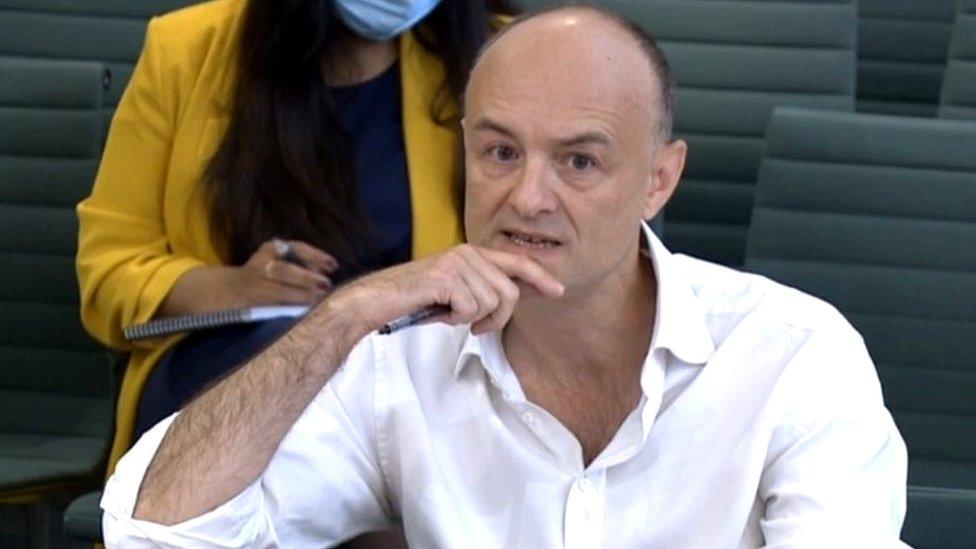
Mr Cummings has for weeks now been trying to damage Mr Hancock, and the Prime Minister too.
It is not that surprising that he has piled in this way in summer 2021, but it seems we are so far now from anything that would relatively recently have been described as 'normal'.
Politics has long been a business where human flaws are on display.
There is nothing new about politicians' private lives going wrong.
And recent events can be dismissed by Boris Johnson's backers - polls suggest he is popular, so, so what?
But for some in his own tribe what has been happening certainly does matter, not because of any particular act, mistake or mishap, but because when "the veneer of the great ship of state slips" due to affairs or leaked texts, process seems to be ignored.
And, as one minster puts it, the public's faith in government could well slip too.
Related topics
- Published28 June 2021
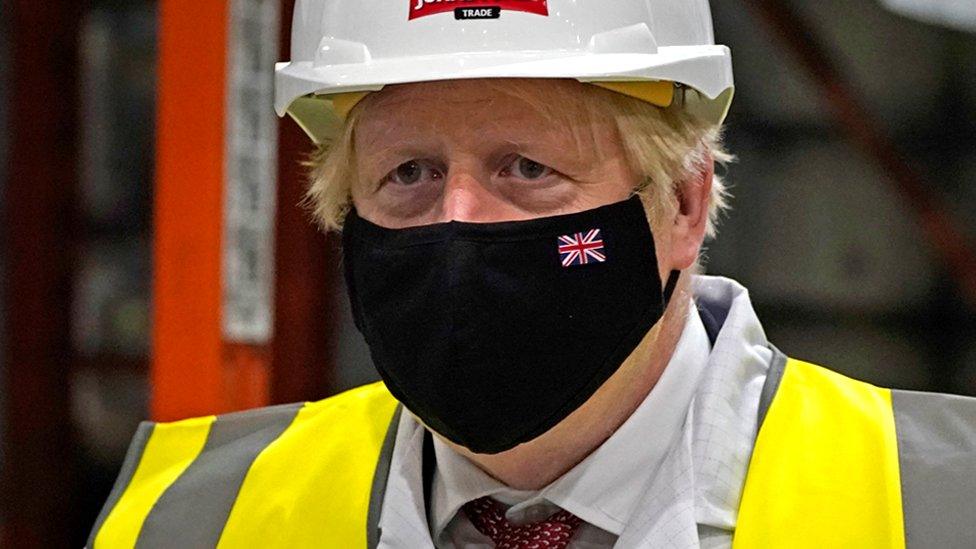
- Published26 June 2021
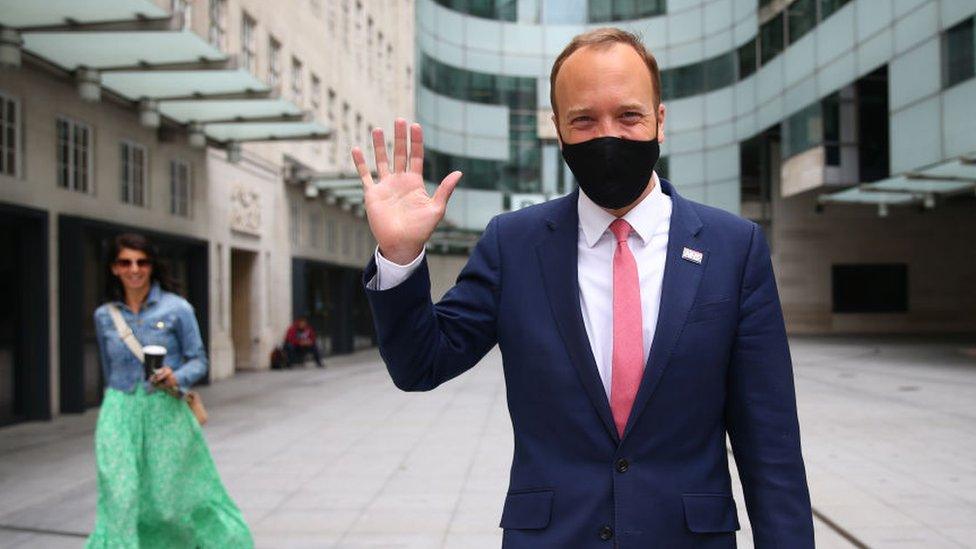
- Published26 June 2021
- Published26 June 2021
